College of Law
Unisa alumnus’s second doctorate sets aviation safety standards aloft
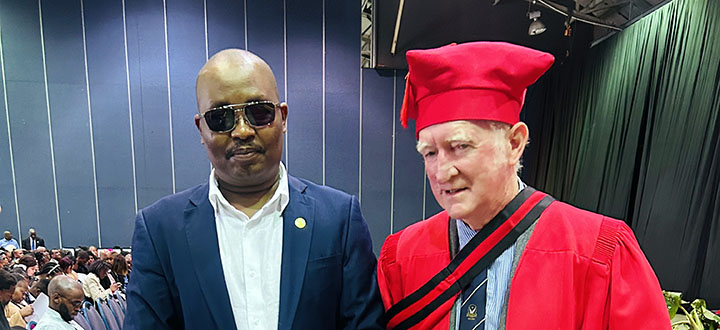
Prof Angelo Dube and Dr Brian Suckling
It was a moment of joy, jubilation and celebration as Dr Brian Suckling was conferred his second doctorate by Unisa in Durban on 11 June 2025. Suckling attributes this milestone, an extraordinary accomplishment, to his sturdy support structures. His wife, Pamela, who came to support him, also indicated that Suckling was easy to support because he is passionate about what he does. Indeed, as a fellow aviator, his supervisor, Prof Angelo Dube, can attest to Suckling’s burning passion for aviation.
As one of two doctoral candidates in Aviation Law to graduate in this autumn graduation season, Suckling exemplifies the kind of scholar Unisa is proud to cultivate – multidisciplinary, experienced and driven by public interest. He is an academic, a licensed airline captain (retired SAA captain and former SA Air Force pilot) and an admitted advocate of the High Court. He holds a Master of Business Administration, a Master of Laws and a Doctorate in Business Leadership. Now, he adds to this impressive list a second doctorate – this time, in Aviation Law.
His dissertation, "A Review of South Africa’s Obligations in Accordance with Annex 13 of the Chicago Convention 1944", dives deeply into one of the most overlooked yet crucial aspects of aviation: air accident investigations. The devastating 12 June 2025 Air India crash that claimed over 290 lives only reinforces the global relevance of his work. It is no longer enough to investigate accidents after the fact; states must have robust, independent and competent frameworks already in place to prevent tragedy and respond with transparency and accountability.
The genesis of Suckling’s study was the crash of the South African Civil Aviation Authority (SACAA)’s own Cessna Citation jet (ZS-CAR) on 23 January 2020. The aircraft, tasked with a routine calibration mission from George Airport, tragically went down, killing three aviators (two men and one woman). The way in which this accident was investigated by SACAA – a body also implicated in the crash – sparked major concerns. These included questions of impartiality, transparency and adherence to international protocols.
His research meticulously unpacked the International Civil Aviation Organisation (ICAO)’s Annex 13 of the 1944 Chicago Convention – the global gold standard in accident investigations. What makes Suckling’s work exceptional is how he compared South Africa’s implementation of Annex 13 with that of leading international accident investigation agencies. Through this, he developed a locally applicable yet globally relevant framework for aviation safety investigations.
Among his critical recommendations are two game-changing proposals: the amendment of the Civil Aviation Act 13 of 2009 and the establishment of an independent National Transport Accident Investigation Agency. This agency, he argues, should be responsible not just for aviation, but for all transport sectors – road, rail and maritime – allowing for professional, conflict-free inquiries that serve public safety rather than institutional image.
This LLD significantly contributes to Unisa’s catalytic niche area of aviation and aeronautical studies, an area of increasing importance in both academic and practical terms. Aviation is a sector that connects nations, fuels economies and saves lives. Yet without trust in the systems that regulate safety and accountability, its legitimacy erodes. Suckling’s research fills a critical knowledge and regulatory gap, especially in the Global South.
More urgently, the past month in South Africa has seen a string of tragic aviation accidents. These include the death of a young couple, Quinton and Lizette Steyn, after crashing shortly after take-off near Middleburg; the loss of 24-year-old pilot Mickyla Steyn in Hartbeespoort; and most recently, the deaths of two student pilots and a medical student in KwaZulu-Natal (Nqobile Biyela, Lulama 'Lwazi' Msane and Siphesihle Buthelezi). These are not isolated events – they are part of a systemic problem. Suckling’s thesis provides the tools and the evidence for change. The study was co-supervised by Dr LB Mhlongo.
That he chose to embark on this academic journey at a stage in life when most might consider slowing down, speaks volumes. It is a testament to his multi-disciplinarity and his deep-rooted commitment to the public good. His career spans distinguished service in the South African Air Force and as a captain with South African Airways. He has also served on the Board of the SACAA, bringing with him a wealth of operational, legal and regulatory insight that very few scholars possess.
It is this lived experience, paired with academic rigour, that makes his voice authoritative. His second doctorate is not merely a personal achievement; it is a public service. His recommendations, if adopted, have the potential to revolutionise how South Africa handles air accidents. They could also serve as a model for other nations seeking to build or reform their investigative frameworks.
In closing, I reflect with pride on the calibre of doctoral work being done under the Unisa banner. Suckling’s journey shows that research grounded in practice, focused on public interest, and driven by academic excellence can change lives. At a time when our skies are becoming more crowded and our safety systems more strained, his study is more than timely: it is necessary.
We celebrate his accomplishment not just as an academic milestone, but as a beacon for safer aviation in South Africa and beyond.
* By Prof Angelo Dube, Supervisor (Acting Director, School of Law)
Publish date: 2025-06-25 00:00:00.0


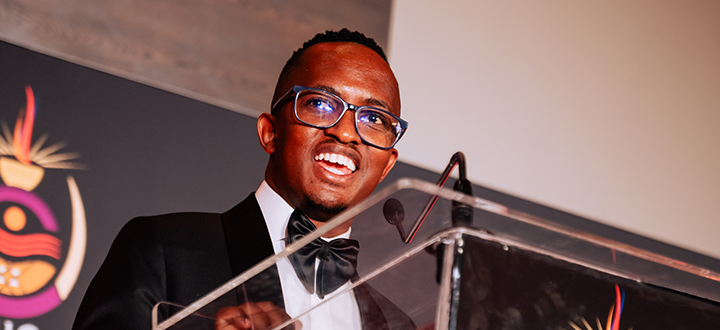 A night of firsts as Unisa’s Convocation raises funds
A night of firsts as Unisa’s Convocation raises funds
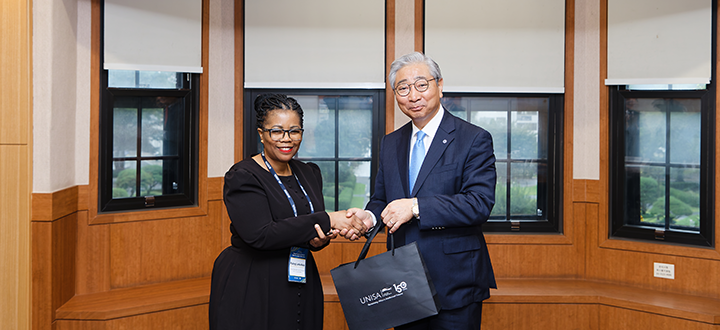 Unisa VC keynotes Yonsei University's Anniversary Conference and signs new memorandum of understanding
Unisa VC keynotes Yonsei University's Anniversary Conference and signs new memorandum of understanding
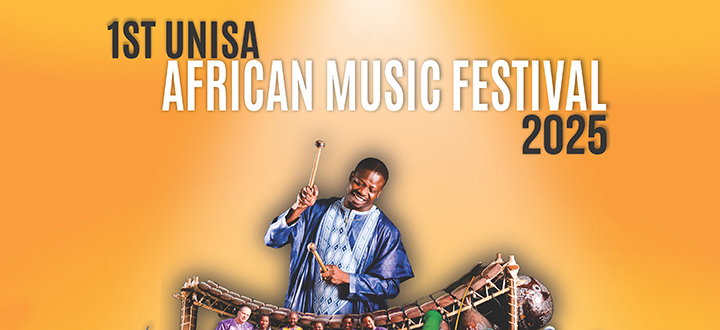 Renowned troubadour, Mamadou Diabaté to headline Unisa's African Music Festival
Renowned troubadour, Mamadou Diabaté to headline Unisa's African Music Festival
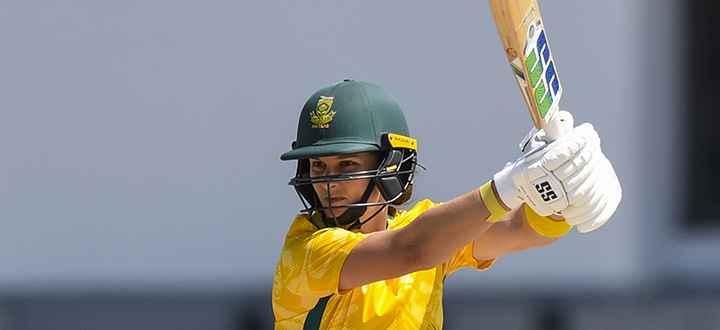 Protea Women's captain obtains a cum laude degree from Unisa
Protea Women's captain obtains a cum laude degree from Unisa
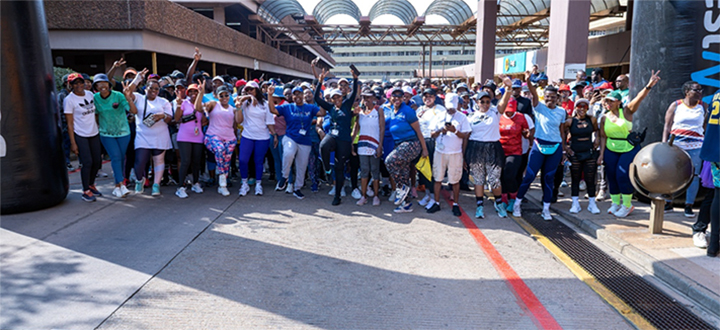 Unisa fosters a healthy working environment
Unisa fosters a healthy working environment